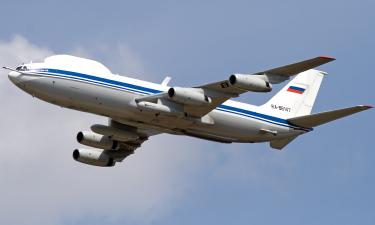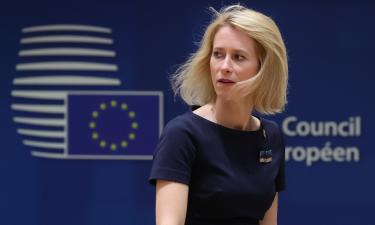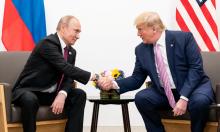Argentina's Elections: Who is Nestor Kirchner?
From the bottom of the world, this Patagonic leader jumped into the international scene
From the bottom of the world, this Patagonic leader jumped into the international scene, as stands the best chances to win the presidential runoff scheduled for May.
"He is a man of action and strong convictions", says one of Nestor Kirchner's supporters after one of his rallies in the center of Buenos Aires. In fact, this something none could deny. Otherwise is impossible to imagine how this 53-year-old lawyer, born in Argentina's far South can be at the top of the preferences to contest the second round of the presidential elections. Then, Kirchner will face the controversial and charismatic former president Carlos Menem, his perfect contrary.
Kirchner has been brought to political life in 1983 as a gray clerk in Rio Gallegos' public administration. Rio Gallegos is the small Capital City of Santa Cruz Province, closer to Antarctica than to the Equator line, where he was born in the bosom of a Catholic German family. Soon, the clerk became Major of his native city, after a long militancy in the Peronist party, the same of Juan Domingo Peron and his famous wife, Evita.
After a successful administration of Rio Gallegos between 1987 and 1991, Kirchner was elected Governor of Santa Cruz Province and thanks to an amendment to the local Constitution, he is still in office.
Kirchner built up a reputation of good administrator and fiscal probity under a program that includes an important public intervention in economy. However, his opponents argue that Santa Cruz is very easy to administrate, as it is almost empty and holds vast energetic resources, including huge oil and gas basins. In fact, Santa Cruz, located in Southern Patagonia is one of Argentina's less populated areas: 159,726 inhabitants in 243,943 square kilometers.
He jumped into the national scene only two years ago, when began his long run for presidency, as an alternative to the two main factions of the hegemonic Peronist Party. Carlos Menem, his main opponent on May 18 runoff, leads the first one and current president Eduardo Duhalde, the second one. Duhalde now backs him as part of his strategy to destroy Menem's power.
By that time, Kirchner used to say that both Menem and Duhalde were part of the same "Mafia system" that deepened Argentina into its worst-ever crisis. However now, as official candidate, Kirchner added to his team of collaborators many of Duhalde's men, including the national Minister of Economy, Roberto Lavagna. On the other hand, Duhalde's tight control over the powerful structure of the Peronist party of Buenos Aires turned into his main source of votes and support.
Undoubtedly, Nestor Kirchner is not a charismatic person. However, his good oratory and pragmatism compensate, partially, that key failure for the local electorate. Definitely, Kirchner is not a statesman. He's got a good technical program on economics, but lacks for clear ideas about the current global scenario and a strategic vision on world's challenges. His slogan: "The world as a market for Argentine products", might sound good for local industrials, but senseless for country's necessity to come back to the international scenario after the 2001 crisis.
As one of his opponents in the first round, Elisa Carrio, says: "Kirchner is not as bad as Menem; we will have to choose between a not-too-bad-candidate and Al Capone (Menem). I will vote for Kirchner". Elisa Carrio's picture clearly shows why Kirchner stands the best chances to be the new president of Argentina. He will enjoy the support of the wide anti-Menem spirit of the Argentineans in a Chirac-Lepen alike scenario expected for the runoff. If Kirchner does not make mistakes, he will be the first Patagonic to become president of Argentina.
Subscribe to Pravda.Ru Telegram channel, Facebook, RSS!




